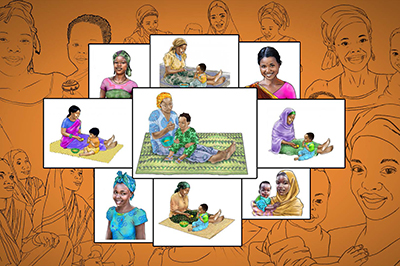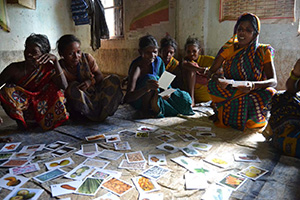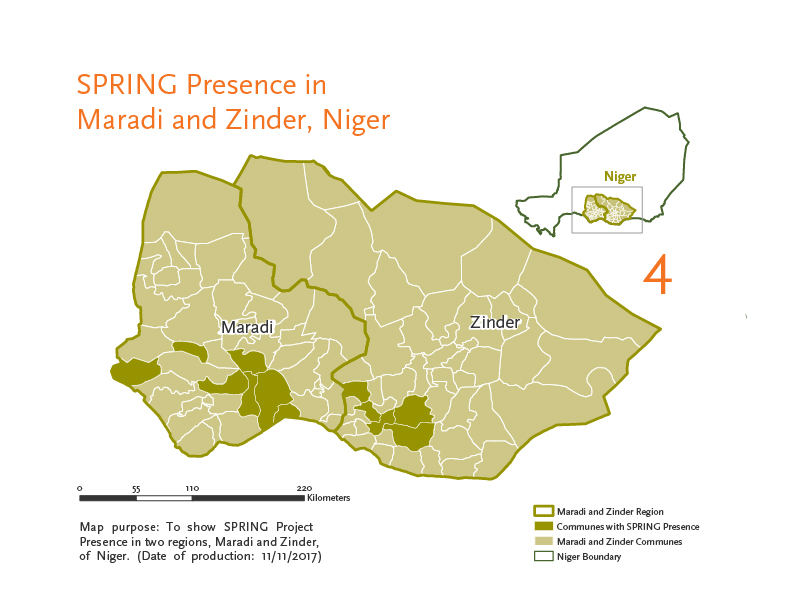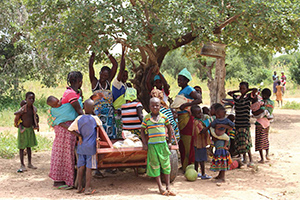Community media
Collaborating and Planning with UPAVAN in India
SPRING’s work in India supports the design and implementation of a five-year randomized control trial (RCT), funded by the Bill and Melinda Gates foundation and the UK Department for International Development (DFID).
Photo-to-Illustration Guide
Introduction

The Importance of High-Quality Visual Images
High-quality images have become an essential component of social and behavior change. They are especially critical in the print materials we develop for use in low-literacy or multi-language settings where written words are often barriers to communication.
SPRING Places in Top Three for Zilient’s 2017 Resilience Awards
SPRING’s community-led video approach to improve nutrition in Niger and Burkina Faso received over 6,000 votes in Zilient’s 2017 Resilience Awards, earning it a third place finish among over 40 submissions.
SPRING worked with key populations in the African Sahel to create locally owned and operated video production "hubs" that produced video messaging to encourage improved nutrition and hygiene behaviors.
Using Farming Families’ Perspectives to Inform Recommended Priority Practices
Executive Summary
Introduction

There is growing recognition in the nutrition community that, to effectively address undernutrition, interventions must go beyond addressing the immediate (nutrition-specific) causes of undernutrition, such as breastfeeding and dietary diversity, to also address underlying (nutrition-sensitive)
Community Media for Nutrition Social and Behavior Change: Learning from the SPRING Project
Since 2012, SPRING has explored and evaluated the role and effectiveness of storytelling in nutrition social and behavior change communication (SBCC), with a focus on community media, defined as technology-enabled media developed in the community, about the community, and with the community.
Seeing is Believing in Niger: Fourth Round of Data Collection

Niger’s Context
Niger, located in the Sahel region of West Africa, is characterized by harsh climate conditions that contribute to structural food crises and high rates of severe acute malnutrition among children.
The SPRING Community Video Program in East Region, Burkina Faso
1. Description of the Intervention and Key Outcomes
1.1. Description of the Intervention

The SPRING project introduced a community media approach in Burkina Faso in February 2016 to reduce undernutrition.
The Impact of Radio on Nutrition-Related Knowledge Behaviors in Senegal
Our Social and Behavior Change Communication Strategy
SPRING/Senegal works with partners to improve household nutrition by increasing awareness and demand for appropriate nutrition-related practices and services. Community radio programs, which have a wide audience in SPRING’s three intervention areas, are a key element of our social and behavior change communication (SBCC) strategy.
Community Video (Niger): Laissons nos filles devenir des femmes avant de les donner en mariage - Let's let our daughters become women before sending them off for early marriage
As they come back from the field, Mr. Mamane and his wife, who live in the village of Dan Fantoua in the Zinder region, talk about marrying their young [teenage] daughter. The daughter, Dawsiya, overhears them and goes to inform her mentor, Sahiba, that her parents want to marry her. Sahiba, the mentor, meets with the parents and draws their attention to the dangers of early marriage. Together, they visit the health worker, and on their way, they run into the mediator. He also explains to them the risks linked to early marriage. After the discussions, Mr.
Pagination
- Previous page
- Page 2
- Next page